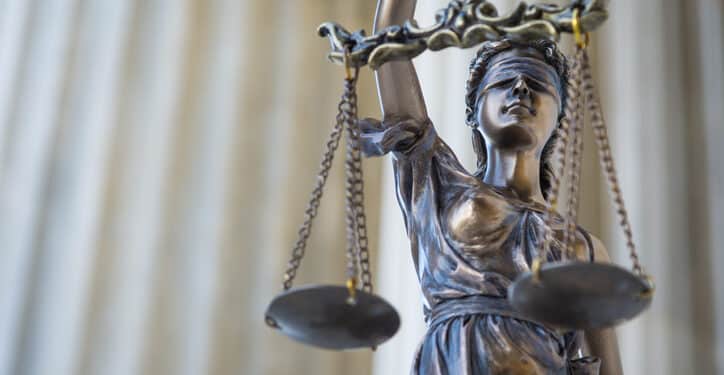In an unprecedented campaign of executive retaliation, during the first months of President Donald Trump’s second term, his administration issued a string of executive orders targeting major law firms across the United States. The reason? Their clients, their causes, and in some cases, the mere association with lawyers critical of Trump’s presidency.
What followed was a constitutional reckoning in federal courtrooms—and a unified rebuke from the large swaths of the legal profession, including several whistleblower defense firms.
A Legal War on Lawyers
Beginning in early 2025, Trump signed a series of executive orders against firms including Jenner & Block, Perkins Coie, WilmerHale, Paul Weiss, and Susman Godfrey. These orders were sweeping in scope and punitive in tone. They accused the firms of engaging in “partisan lawfare,” supporting “attacks against women and children,” and “degrading the quality of American elections”—claims made with little or no substantiating evidence.
The orders went further than rhetoric. They directed federal agencies to:
- Suspend security clearances of law firm personnel,
- Terminate government contracts involving the targeted firms,
- Bar firm attorneys from entering federal buildings,
- Discourage hiring of former firm employees, and
- Trigger civil rights investigations over alleged race-based hiring practices.
One firm was accused of undermining American interests because it had previously employed Andrew Weissmann, a former prosecutor on Special Counsel Robert Mueller’s team.
A Profession Unites
In response to the administration’s campaign, 884 law firms signed on to an amicus brief in Susman Godfrey LLP v. Executive Office of the President, calling for a permanent injunction. The brief, filed in April 2025, warned that the orders “pose a grave threat to our system of constitutional governance and to the rule of law itself.”
Citing Velazquez, Martinez, and NRA v. Vullo, the amici emphasized that the adversarial system depends on lawyers’ ability to advocate without fear of retaliation. “Whatever short-term advantage an administration may gain,” the brief stated, “the rule of law cannot long endure in the climate of fear that such actions create.”
The Susman Godfrey filing was not an outlier. Similar amicus briefs were filed in support of Perkins Coie and Jenner & Block—two other targets of the executive crackdown. These briefs shared a consistent message: targeting law firms for their advocacy violates fundamental constitutional protections.
Notably, among the signatories of the briefs were numerous firms recognized for their work in whistleblower and False Claims Act litigation. A cross-reference with the Taxpayers Against Fraud (TAF) directory identified several such firms, including:
- Kohn, Kohn & Colapinto LLP
- Berger Montague PC
- Cohen Milstein Sellers & Toll PLLC
- Hagens Berman Sobol Shapiro LLP
- Kaplan Law Firm, PLLC
- Katz Banks Kumin LLP
- Miner Barnhill & Galland, PC
- Motley Rice LLC
- Nichols Kaster, PLLP
- Ogborn Mihm, LLP
- Outten & Golden, LLP
- Singleton Schreiber LLP
- Schonbrun Seplow Harris Hoffman & Zeldes, LLP
- The Employment Law Group, PC
- The Norton Law Firm PC
- Whistleblower Partners, LLP
- Walden Macht Haran & Williams LLP
In Perkins Coie LLP v. DOJ, nearly 800 law firms, individual attorneys, constitutional scholars, and former government officials joined the amicus brief. It emphasized that the orders punished lawyers for representing controversial clients and cited Legal Services Corp. v. Velazquez and Gibson v. Fla. Legislative Investigation Comm. to affirm that such advocacy must remain protected.
Meanwhile, in Jenner & Block LLP v. DOJ, the amicus brief underscored the separation-of-powers crisis precipitated by the executive orders. It warned that executive interference in legal representation undermines the judiciary’s role. Former DOJ officials, including several ex-U.S. Attorneys and Solicitors General, endorsed the filing.
“The response of the legal profession, which included both leading defense firms and leading whistleblower firms, demonstrates the absolute importance of the legal profession standing up to any attempt to undermine the right of clients to choose their lawyers,” says whistleblower attorney Stephen M. Kohn, founding partner of Kohn, Kohn & Colapinto LLP. Whistleblower law firms, whose clients often are unpopular and targeted by the rich and powerful, have an absolute duty to aggressively stand up to this attack on our profession and the rights of clients.”
Taken together, these filings reflect a coordinated and robust legal counteroffensive. Across practice areas and political affiliations, the legal community unified to defend the principles at the core of the profession.
Judicial Smackdown: The Courts Respond
The backlash from the judiciary was also swift and severe.
In Jenner & Block LLP v. U.S. Department of Justice, Judge John D. Bates issued a scathing 52-page opinion declaring the executive order against Jenner & Block unconstitutional in its entirety. “Going after law firms in this way,” he wrote, “is doubly violative of the Constitution.” The order, he held, retaliated against protected legal advocacy and sought to insulate the Executive Branch from judicial scrutiny—violating both the First Amendment and the separation of powers.
Judge Bates enjoined the order in full, warning that such tactics chill core constitutional protections. “The legal profession as a whole is watching and wondering,” he noted, “whether the federal government will turn its unwanted attention to them next.”
Judge Beryl Howell, ruling in Perkins Coie LLP v. DOJ, echoed these concerns. Drawing from Shakespeare’s famous line—“The first thing we do, let’s kill all the lawyers”—Judge Howell compared Trump’s actions to authoritarian tactics. The court rejected the administration’s attempt to weaponize government power against disfavored law firms, calling the effort a “cringe-worthy twist” on democratic norms.


